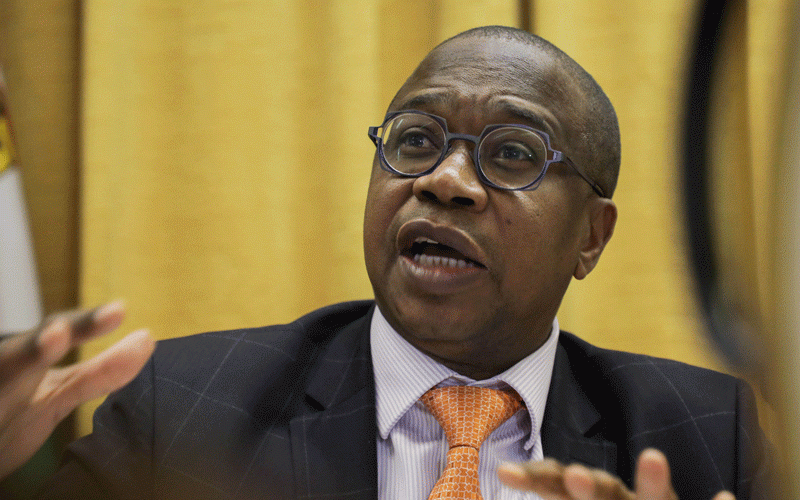
THE 2024 National Budget that was recently presented by the Minister of Finance, Economic Development and Investment Promotion has been one of the most controversial topics in town.
In it was a proposal to introduce several taxes and increase in some fees and levies, which according to the insights I have gathered so far was not well received in the market.
What was purported to be a pro-poor budget, meaning a budget in favour of the low-income earners, turns out to be promoting poverty by taking from the poor.
This is at a time when a drought is expected next year and commodity prices are very low.
The minister has tough decisions to make, and If I ever had an opportunity to sit with his office, this is what I would suggest.
Wealth tax on properties
The proposition of a 1% per annum wealth tax for principal private residential property valued above US$100 000 is amongst the most controversial parts of the budget.
The argument is land owners are already paying stamp duty when buying the property and rates to the city council annually, not to mention that the threshold of US$100 000 is too low to define a wealthy Individual.
- Drama around Ndebele king making a mockery of the throne
- Umkhathi Theatre Works on King Lobengula’s play
- Street mural exposes Zim’s divided society
- Minister tips ICTs to drive economic recovery
Keep Reading
Considering the lack of a formal rental market in the country, you will find that most land owners, who are cashflow poor co-live with tenants, either at the cottage or renting out other rooms.
If the proposition is adopted as it is, the levy will be passed down to the tenant, who is the poor person.
I would propose to lift the threshold to houses valued above US$500 000 instead or to start applying the tax on an individual’s second house in the worst case.
Sugar content levy of beverages
I think this is a noble idea in principle but not sure it will work well in its current proposed form.
In the budget, the minister proposed to introduce a levy of US$0,02 per gram of sugar contained in beverages, excluding water.
South Africa is an example with a similar levy called the Health Promotion Levy (HPL), which charges 2,1 cents per gram of sugar content that exceeds four grams per 100mls, meaning the first four grams are tax-free.
Delta Beverages, one of the biggest listed companies in the country and a beverages manufacturer reported that last year it sold 1,59 million hectolitres of sparkling beverages, the highest record since 2014.
At the same time Varun beverages, another private player is pushing volumes such that these two have been involved in some price war. My suggestion would be to relook at the sugar tax and remodel it economically because, in its current form, other products will pay more taxes than the current selling price.
Domestic minimum top-up tax
The budget also proposed the introduction of a Domestic Minimum Top Up Tax (DMTT), which is essentially an additional tax for multinational companies that ends up with an effective tax below 15%.
The top-up tax will be collected in the country where the low tax profits arise from as opposed to ceding taxing rights to the headquarters jurisdiction.
The proposal is in line with global best practices with 140 other countries having adopted the system according to the budget.
Motor vehicle insurance
It is the minister’s view that some private third-party insurers might be unmotivated to pay out claims due to their profit-oriented nature.
In that regard, the minister proposed that the government take over third-party insurance for private and public motor vehicles.
Furthermore, the minister proposed to broaden the insurance coverage to include medical benefits and rehabilitation amongst others.
I opine that the idea to protect the premium payers from profit-oriented companies is a positive move, however, given the government’s history with running organisations, I am not sure if they are the best candidate.
Tax on un-beneficiated lithium
The minister increased the tax on un-beneficiated lithium from 5% to 6%. Zimbabwe is in the top six countries with the highest lithium deposits and the country hopes to benefit from the value addition and beneficiation of the white mineral.
Lithium producing companies were ordered to submit their beneficiation plans by the end of the first quarter of 2024 and no new licences will be issued without the beneficiation plans.
It was clear that the beneficiation that does not produce lithium carbonate is not regarded as beneficiation and would be liable to export tax.
The proceeds of the incremental tax will be used to benefit the areas where the mineral is mined.
I think this is a positive move and perhaps the punishment should be more severe to encourage the miners to open industries locally for the manufacturing of the batteries.
Value Added Tax
In an economy where over 60% is now informal, efforts to formalise the grey economy were expected.
The minister proposed to review the VAT registration threshold from US$40 000 to US$25 000.
Essentially this widens the bracket of companies that register for VAT.
In addition, the minister also proposed that only licenced and tax-compliant operators procure goods from manufacturers.
Some local manufacturers had started selling directly to tuckshop operators, as they called it a new route to the market due to their cash purchases basis.
The duty-free importation of basic commodities will also expire on 31 January 2024.
I opine that this is a positive step as it allows the informal and formal retailers to compete on a level playing field unlike in the previous regime.
Overall opinion
The minister also proposed to hike several fees that are paid to the government, including vehicle registry fees, toll fees, and passport fees amongst others.
Although I understand that the government needs to increase its revenue base, I opine that the negative impact these fee hikes will have especially on low-income citizens will be more devastating than projected benefits.
The Covid allowances that amount to US$300 that civil servants were getting will be pensionable effective beginning next year.
Essentially the minister has converted the allowance into a salary by making it pensionable and perhaps it will become taxable as well.
Although this is a hard pill to swallow for civil servants, I think it was a necessary move.
However, the problem is that confidence has been lost in the pension space due to previous circumstances.
In conclusion, I have mixed feelings towards the budget, there are proposals that I resonate with and believe that they are best for the country, for example, the increased tax on un-beneficiated lithium and at the same time there are some that might need to be reconsidered like the wealth tax and levy on sugar beverages amongst others.
Hozheri is an investment analyst with an interest in sharing opinions on capital markets performance, the economy and international trade, among other areas. He holds a B. Com in Finance and is progressing well with the CFA programme. — 0784 707 653 and Rufaro Hozheri is his username for all social media platforms.











